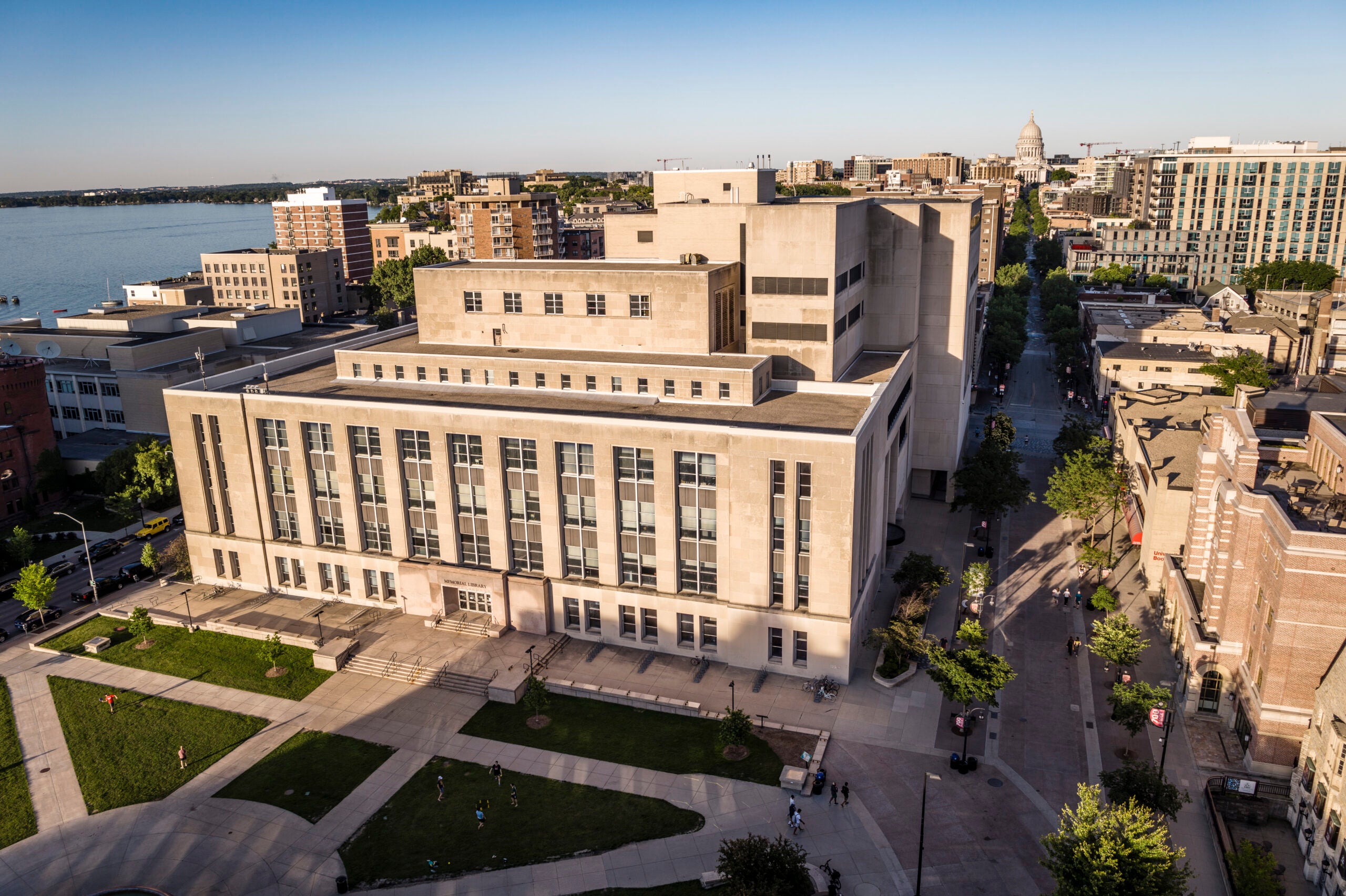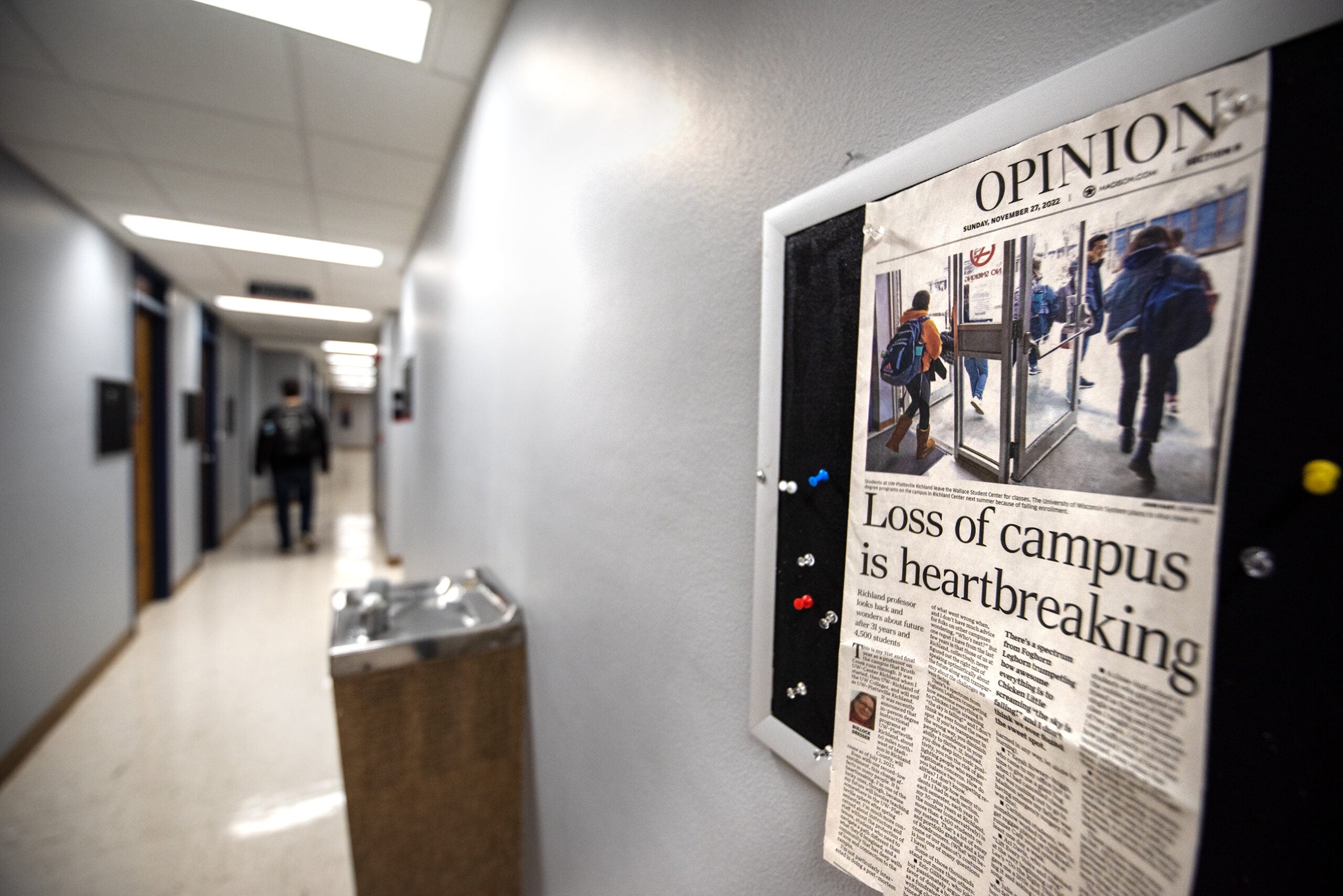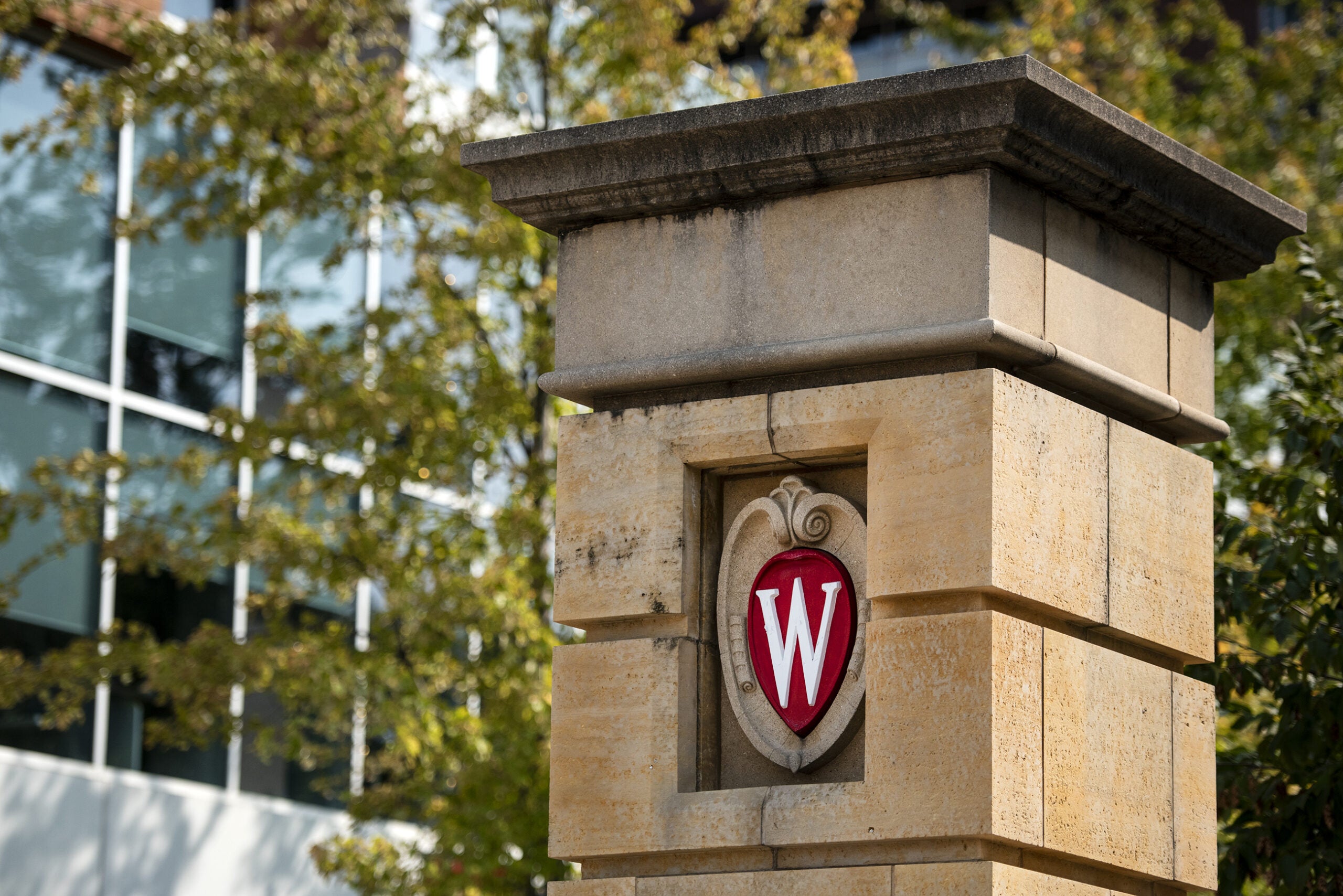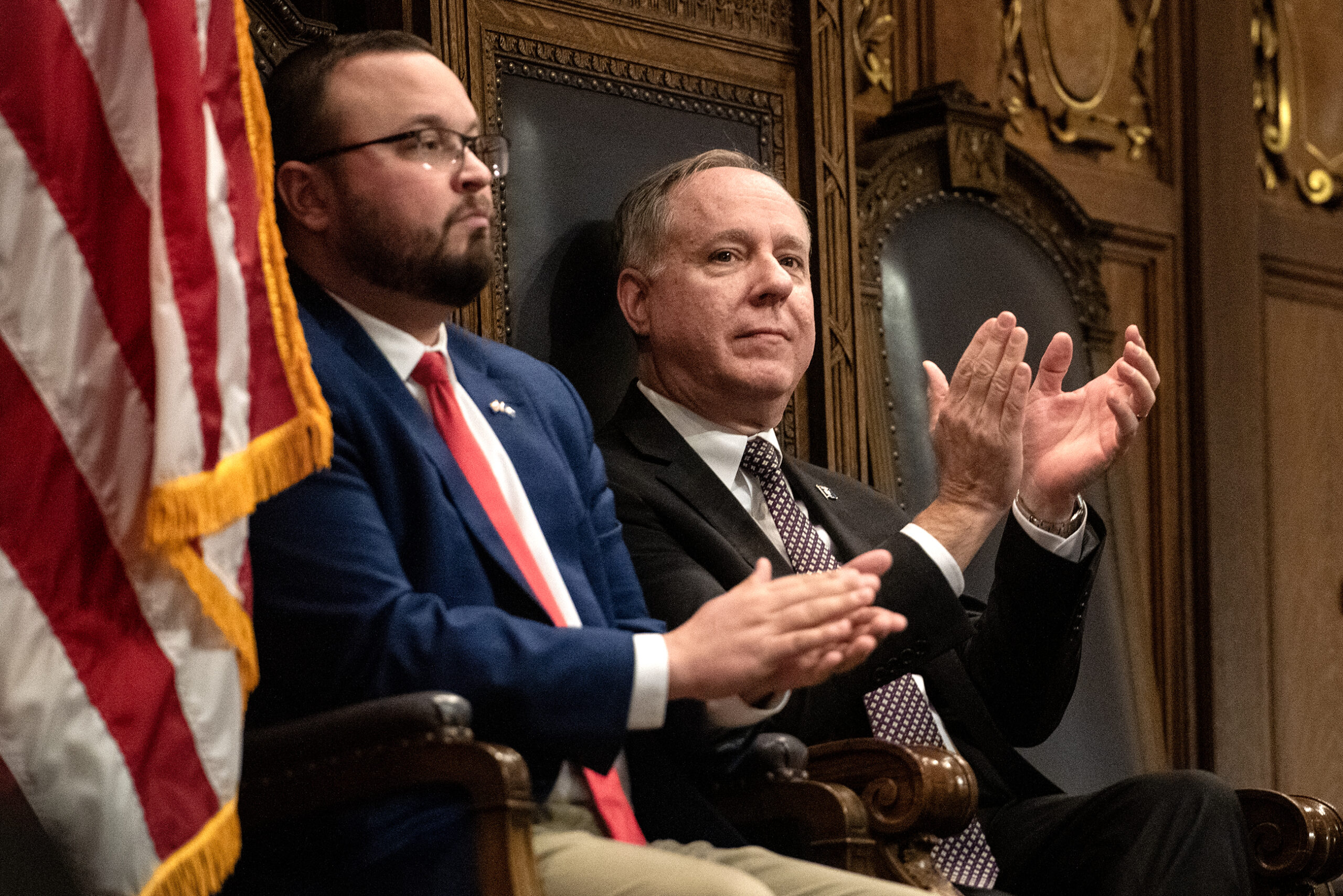State lawmakers are clashing in the wake of the new University of Wisconsin System budget proposal, disagreeing over the fundamental role of the university system.
Republicans who control the state Legislature say the system is making appropriate and timely changes to spur economic growth in Wisconsin, while Democrats are decrying the system’s direction as inappropriately political.
“This is a continued track record of the UW System not asking for what we hear from individual campuses and their needs,” said Rep. Katrina Shankland, D-Stevens Point, who sits on the state budget-writing committee. “This seems like a pretty concerted effort from Republican legislators, Gov. (Scott) Walker, and the UW System to transform higher education so it’s less focused on critical thinking.”
News with a little more humanity
WPR’s “Wisconsin Today” newsletter keeps you connected to the state you love without feeling overwhelmed. No paywall. No agenda. No corporate filter.
The proposal, released Monday, calls for a $107.5 million spending increase over the next two years. It includes funding for a number of programs aimed at increasing schools’ capacity to prepare students for careers in high-demand fields, including technology and health care.
“We’re really seeing a move away from the liberal arts on campuses when we know the Wisconsin Idea is to serve the entire state — it isn’t just to train workers in STEM,” Shankland said, referencing the acronym for the fields of science, technology, engineering and math.
Shankland referenced the proposed elimination of 13 liberal arts-focused majors at UW-Stevens Point. Those majors include American studies, art, and political science.
However, GOP state lawmakers argued a focus on combating the state’s worker shortage through UW System initiatives should be something members of both political parties can get behind.
“I don’t think they are just Republican goals, I think it should be bipartisan goals,” said Sen. Alberta Darling, R-River Hills, who co-chairs the state budget committee. “I think most of our citizens would agree we need to focus on growing the economy, that we have a major workforce shortage.”
Aside from the focus on growing specific areas of study at UW schools, lawmakers on opposite sides of the aisle disagreed over whether the system has recovered from the $250 million cut approved in the 2015-17 state budget.
“For years, Gov. Walker’s decision to prioritize tax breaks for the wealthy and foreign corporations has come at the expense of Wisconsin schools, universities and technical colleges,” said Senate Minority Leader Jennifer Shilling, D-La Crosse. “It’s disappointing that the Walker administration has continued to shortchange our students, families and locally-grown businesses.”
Rep. John Nygren, R-Marinette, who co-chairs the budget committee, said he believes the UW System is “on strong financial footing.”
“It is still a desirable place to attend, whether you be a Wisconsin resident or an out-of-state resident,” he said. “I do think (the system is) well established to continue to deliver a high-quality education.”
Democratic lawmakers have also raised concerns about the performance-based funding in the budget, arguing it creates “haves” and “have nots,” if schools face cuts for failing to meet goals.
Nygren argued system schools were involved in drafting the performance measures, which allows them to tailor unique goals for their campuses.
Shankland argued allowing universities to choose their own measures isn’t sufficient.
“Even if universities can choose from a set of standards, it doesn’t mean they get to define the struggles they inherit when students come to campus and have a disproportionate number of first-time students, for example,” she said. “I don’t think that is an appropriate set of criteria for the Legislature to be involved in.”
Nygren said if problems arise with the performance-based funding model, it can be tweaked by lawmakers in the coming years.
The governor’s administration will continue to collect budget proposals from state departments this fall.
Wisconsin Public Radio, © Copyright 2025, Board of Regents of the University of Wisconsin System and Wisconsin Educational Communications Board.







